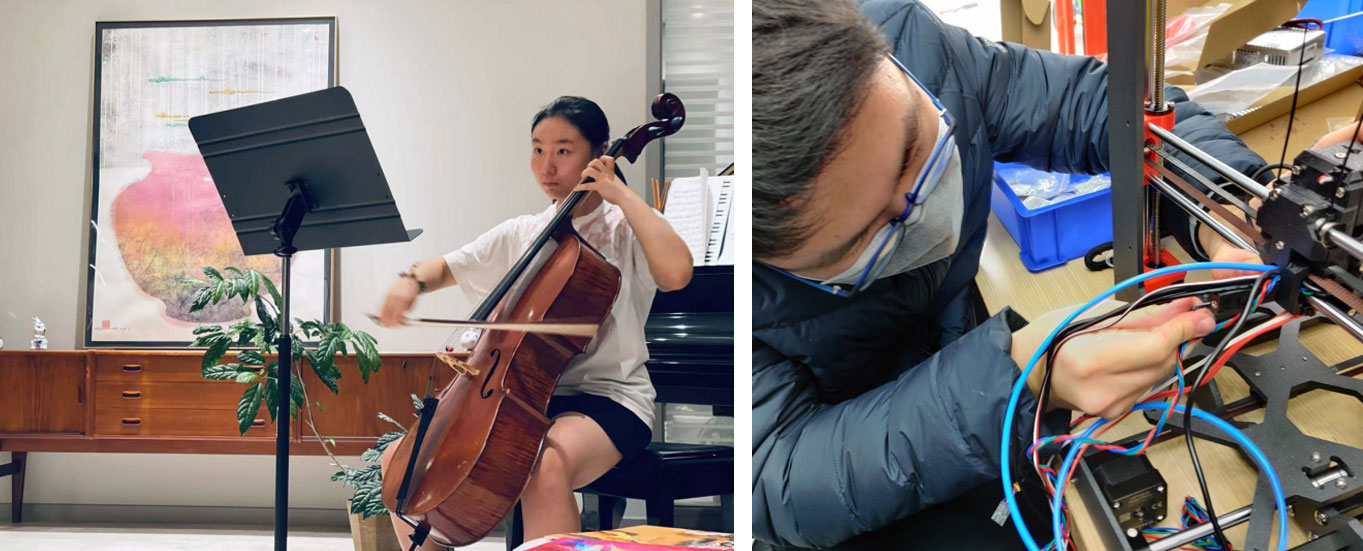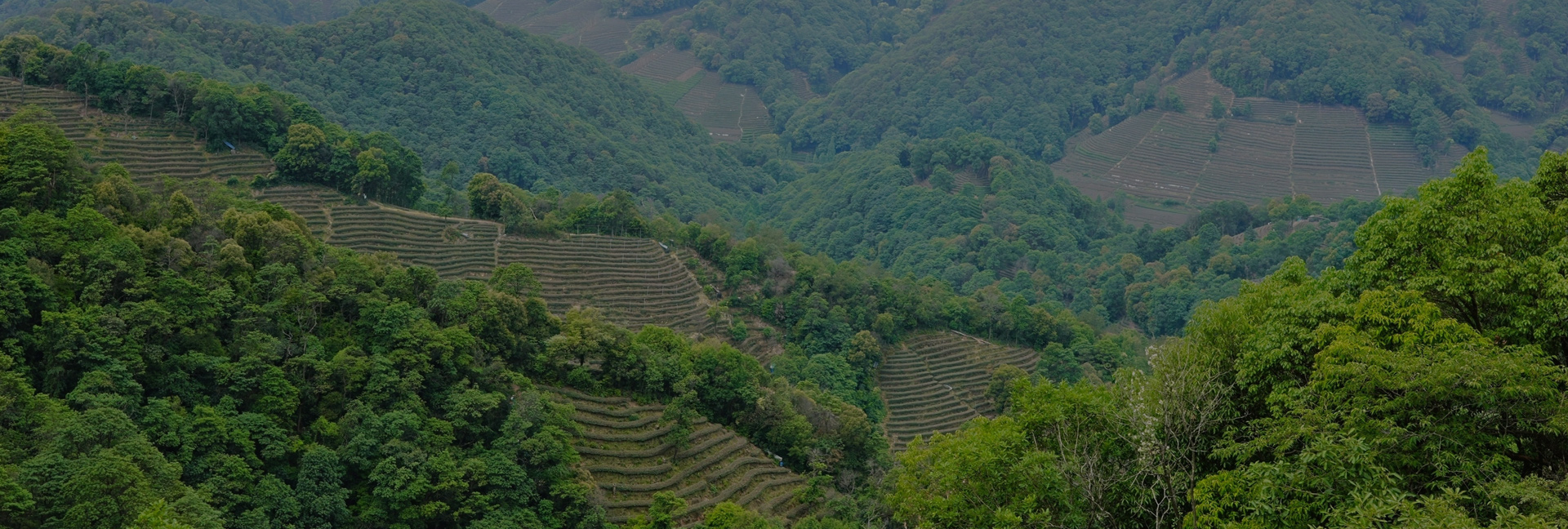

The Duke of Edinburgh's Award (DofE Award) is a youth award program founded in the United Kingdom in 1956 by the Prince Philip, Duke of Edinburgh, which has since expanded to 144 nations. By recognizing the amazing things young people do and learn outside the boundaries of formal education, the Award empowers them to gain experience and grow into responsible, capable, and ambitious global citizens.
The guiding principles of the Award include individual, balanced, non-competitive, and persistent (participants are required to dedicate at least one hour per week for at least 6 months). GHCIS recognizes the values of the Award and became one of the first international schools in mainland China to introduce the program in 2018. Since then, it has become one of our most important extracurricular activities, with over 50% of new students participating each year.
The program consists of four main sections: Voluntary Service, Physical Recreation, Skills and Adventurous Journey with three progressive levels: Bronze, Silver and Gold Level. At the Gold level, participants must also complete a fifth Gold Project.

Students can set goals in the four sections that resonate with their interests and abilities based on various club activities at GHCIS or other interests outside school. They can earn the award by completing their self-set challenges. Through these extracurricular activities, students become better versions of themselves, discover hidden talents, develop untapped leadership, and enhance their impact on the community.
In the Adventurous Journey, students discover a spirit of adventure and gain a deeper understanding of the environment and great outdoors. They form groups of 4-7 persons to learn outdoor skills, plan routes, and select themes related to biology, geography, or culture. They undertake journeys into unfamiliar environments for hiking, camping, and outdoor cooking. Each member takes on individual tasks during the exploration and collects information about their chosen themes. This activity presents significant challenge for many students, such as hiking long distances in harsh weather or resolving conflicts within the group. However, these obstacles are meaningful as they develop personal growth, teamwork, leadership, and confidence.
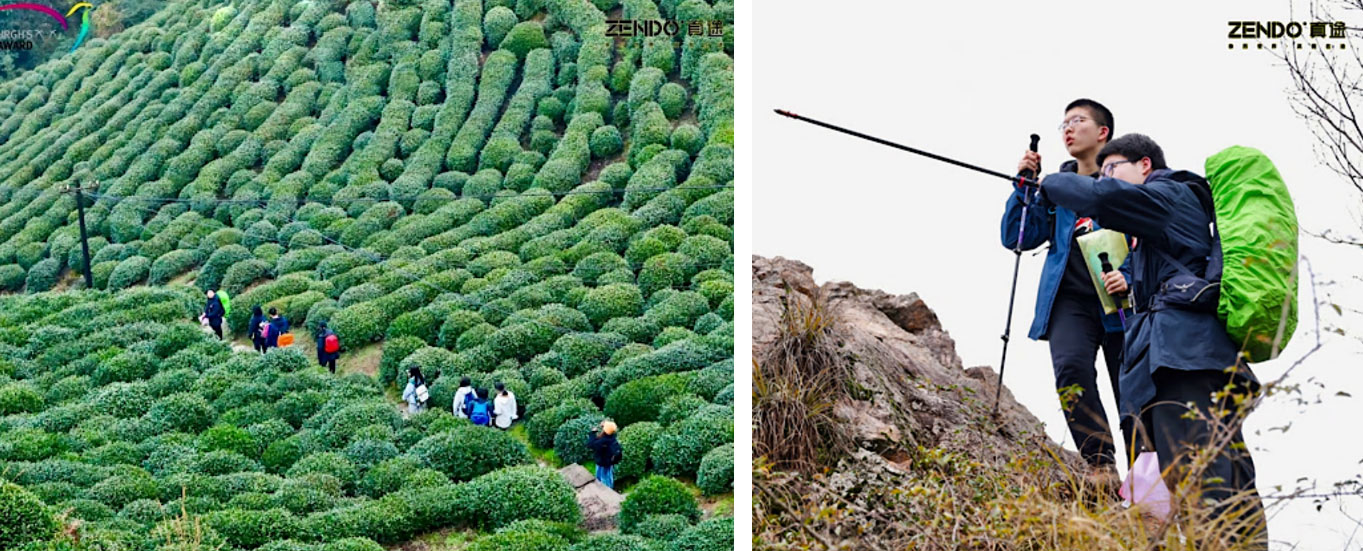
In recent years, our students have hiked, cycled, and kayaked in various locations including Shanghai's Hengsha Island, Dianshan Lake, Dongshan in Suzhou, Mogan Mountain in Huzhou, Tea Mountain in Hangzhou, Huizhou Ancient Road, Junzhang Ancient Road in Wuxi, Qianjiang Natural Park in Kaihua, Longxu Mountain in Jixi, and Qinghai Lake.
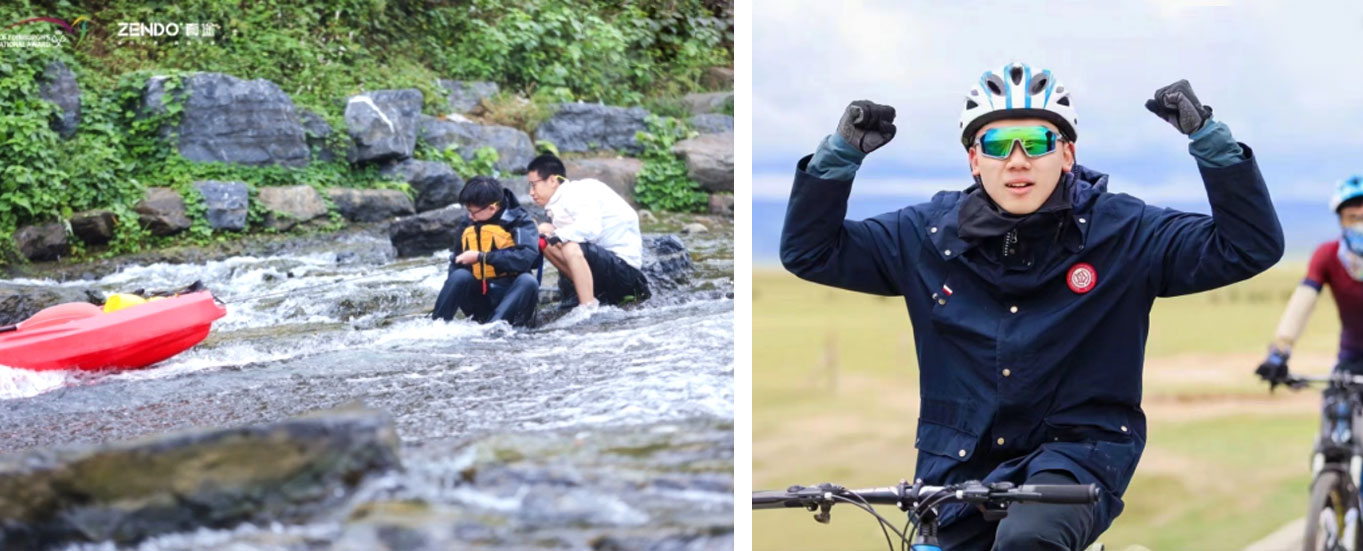
Through the Duke of Edinburgh's International Award, GHCIS students bravely embrace diverse challenges, overcome difficulties, and develop into more complete and confident individuals. They learn “Challenging themselves” which is a crucial aspect of their future personal and social contributions.
This section encourages students to actively contribute to their communities, meet people from different backgrounds, and develop a sense of accomplishment and social responsibility. On campus, contributions include assisting in labs and sports teams, volunteering for school events, organizing shelves in convenience stores, cleaning playgrounds, tutoring younger peers, teaching Chinese to foreign teachers, and leading student organizations and charity foundations.

Outside school, students may guide visitors in hospitals and subways, work in public bookstores and libraries, give tours in museums, accompany left-behind children and the elderly, participate in animal rescue, or volunteer to teach in rural areas. These activities increase their awareness of social challenges and deepen their sense of social responsibility.
This section of the Award encourages students to improve their fitness and performance through weekly exercise to enjoy health, happiness, and confidence. Students develop resilience and teamwork skills through team sports and competitive activities such as running, basketball, soccer, badminton, table tennis, swimming, boxing, fitness, dance, skateboarding, and horse-riding, etc.
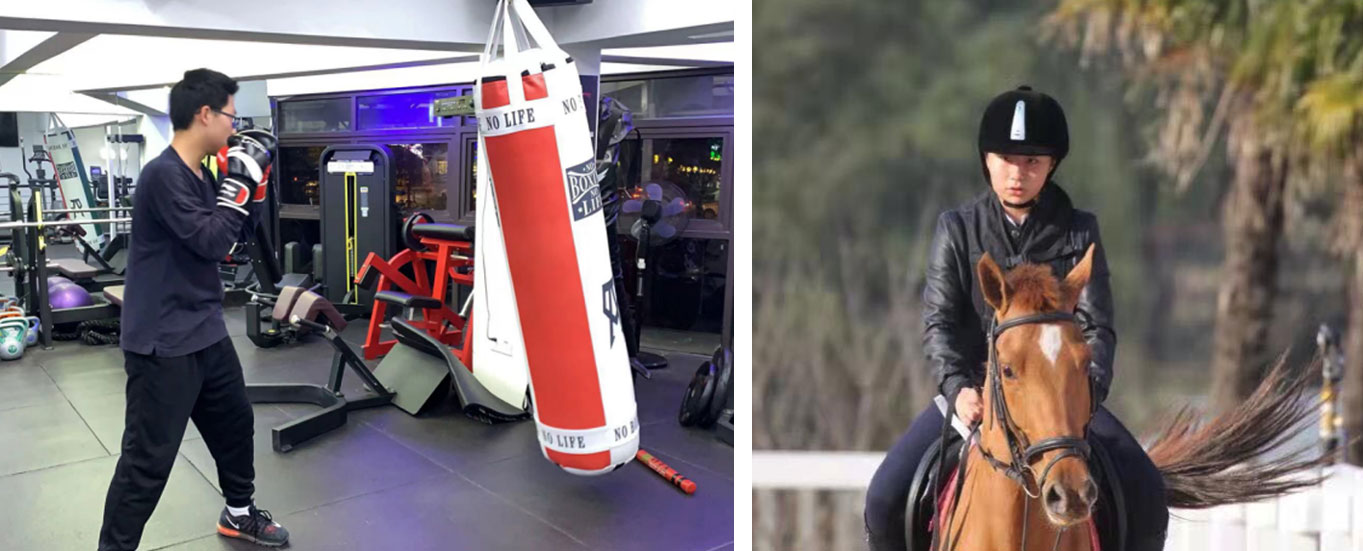
The Skills section enables students to develop their talents, broaden their abilities, increase their self-confidence. Participants can choose from various options such as music (e.g., choir, violin, piano, drums), arts and crafts (e.g., calligraphy, knitting, painting), performance or communication (e.g., drama, debate), new technologies (e.g., robotics, programming), and life skills (e.g., cooking).
